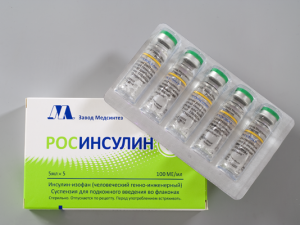Symptoms of diseases, diseases of the thyroid gland

Thyroid disease is the most common endocrine pathology. The thyroid gland is the most important organ of internal secretion, which generates energy necessary for the operation of all important organs and systems of our body and facilitates the regulation of the metabolism. Among the more common diseases of this gland are: autoimmune thyroiditis, hypothyroidism, thyrotoxicosis. Consider the symptoms of diseases, thyroid gland diseases.
Symptoms of thyroid disease - autoimmune thyroiditis
Chronic inflammation of the tissue of this organ, which has an autoimmune genesis and which is associated with the destruction and damage of follicular cells of iron and follicles, is an autoimmune thyroiditis. There are: chronic, postpartum, cytokine-induced, painless thyroiditis. The following phases are distinguished in all autoimmune thyroiditis: euthyroid, subclinical, thyrotoxic, hypothyroid.
In most cases, chronic autoimmune thyroiditis for quite a long time has no special symptoms. In rare cases, a change( increase) in the thyroid gland can be determined. Thus the patient complains of easy fatigability, joint pains, weakness, unpleasant sensations in the field of a struma( pressure, a lump in a throat).
Postpartum thyroiditis mainly manifests itself as a mild toxemia after childbirth. There is fatigue, weight loss, general weakness. In some cases, this disease is significantly expressed: the appearance of tachycardia, excessive sweating, feelings of heat, insomnia, emotional lability, tremor of extremities.
No-bolide thyroiditis is expressed in a small, mainly subclinical thyrotoxicosis. Cytokine-induced thyroiditis is generally not accompanied by severe hypothyroidism and thyrotoxicosis.
Symptoms of thyroid disease - hypothyroidism
The pathological condition that occurs with an insufficient number of thyroid hormones is hypothyroidism. These hormones affect the metabolic processes, with their deficiency, the functions of all organs and systems fail. This disease occurs due to the lack of iodine in the body. There are several types of such thyroid disease: primary hypothyroidism, which occurs when the thyroid gland is damaged;Secondary, developing because of a lack of a hormone( thyreotropic).
Hypothyroidism initially develops slowly and proceeds secretly, asymptomatically. But still the symptoms of this disease can be seen: dry skin develops, weakness and fatigue increase, potency decreases, sexual desire, the menstrual cycle is lost, constipations appear. Increases the fragility of nails, hair becomes dull, there are irregularities in the work of the cardiovascular system, the amount of cholesterol in the blood increases, and blood pressure failures begin. And also appear: insomnia, depression, weight gain. In extreme degree of this disease develops in adults myxedema - it is edema of tissues and organs. Strongly visible myxedema on the palms, around the eyes, legs and forearms. The tongue remains a print of teeth, due to its edema. In children with congenital hypothyroidism, dementia develops gradually.
Symptoms of thyrotoxicosis
Thyroid disease, such as thyrotoxicosis, is associated with an overabundance of hormones that are produced by this gland. When thyrotoxicosis enters the bloodstream of hormones, which are produced by the thyroid gland more than normal. In this case, the intensity in the metabolism increases several times.
When this disease of the thyroid gland occurs such symptoms: weight loss, increased heart rate, excessive sweating, fever in the body, weakness and fatigue, tremors, pressure on the eyes, a feeling of "sand" in the eyes. Also decreased potency, irritability, aggressiveness.
Treatment of pancreatic diseases is simply necessary. If there are symptoms of the disease of this gland, then urgently go to the doctor.



